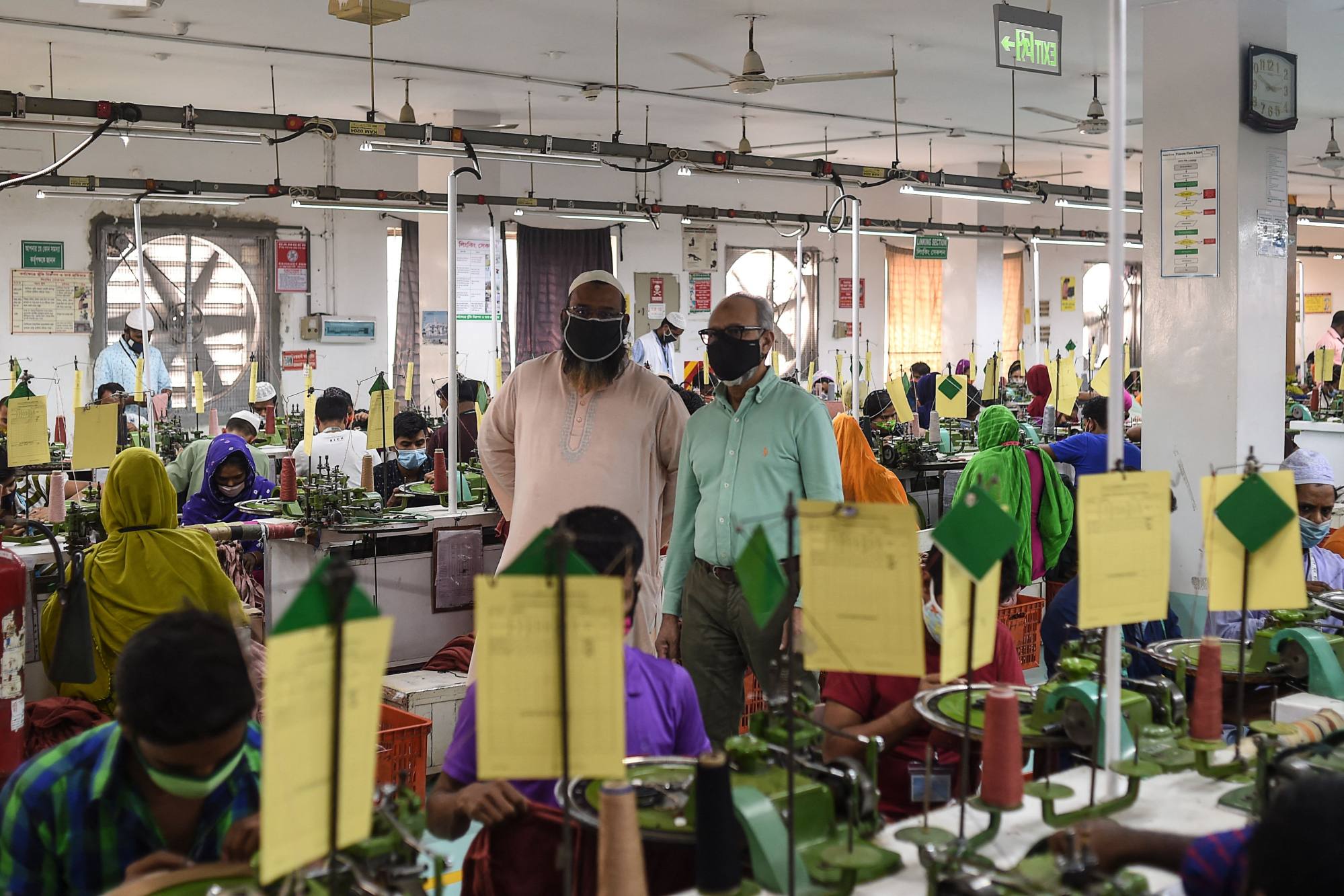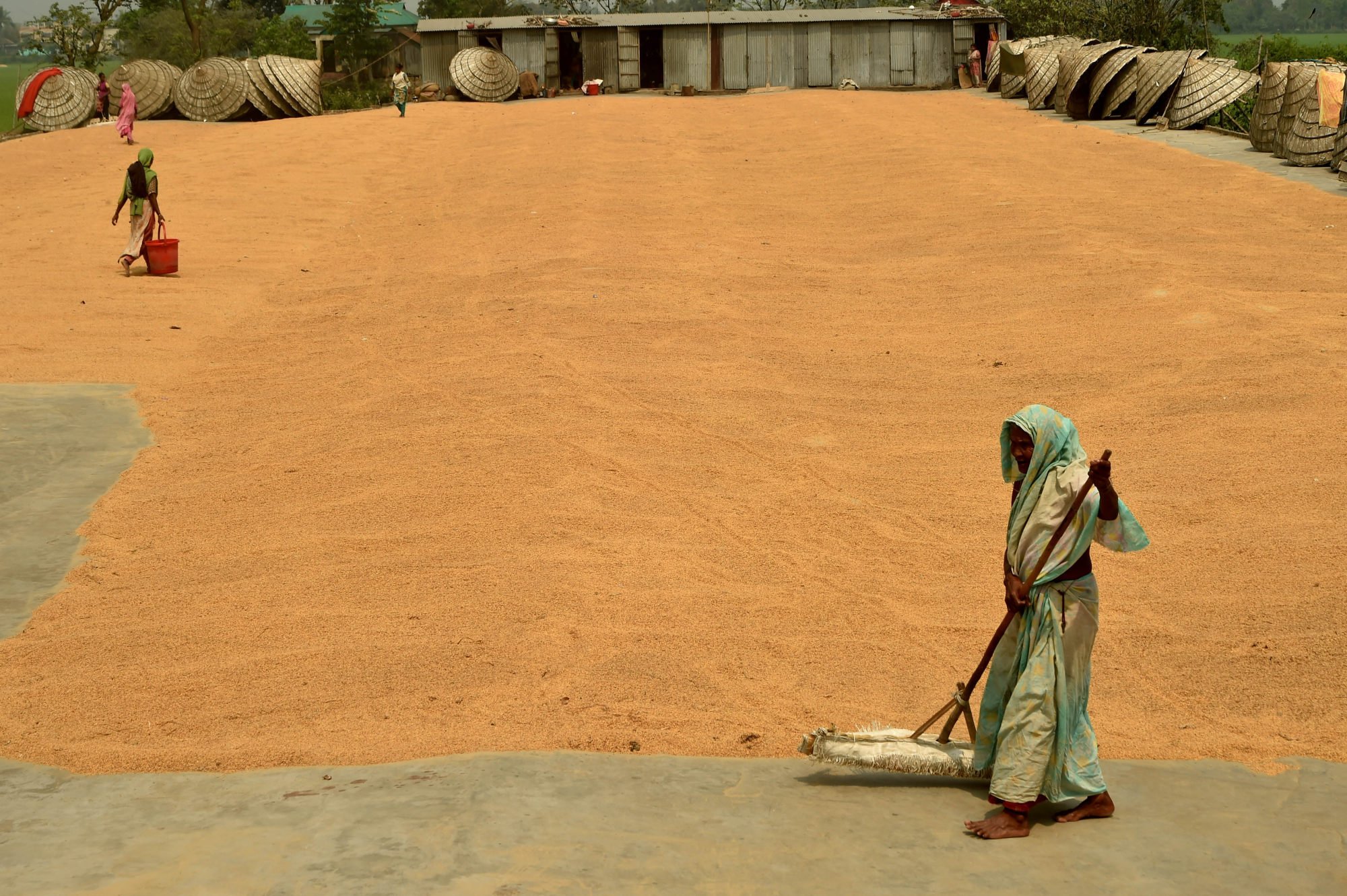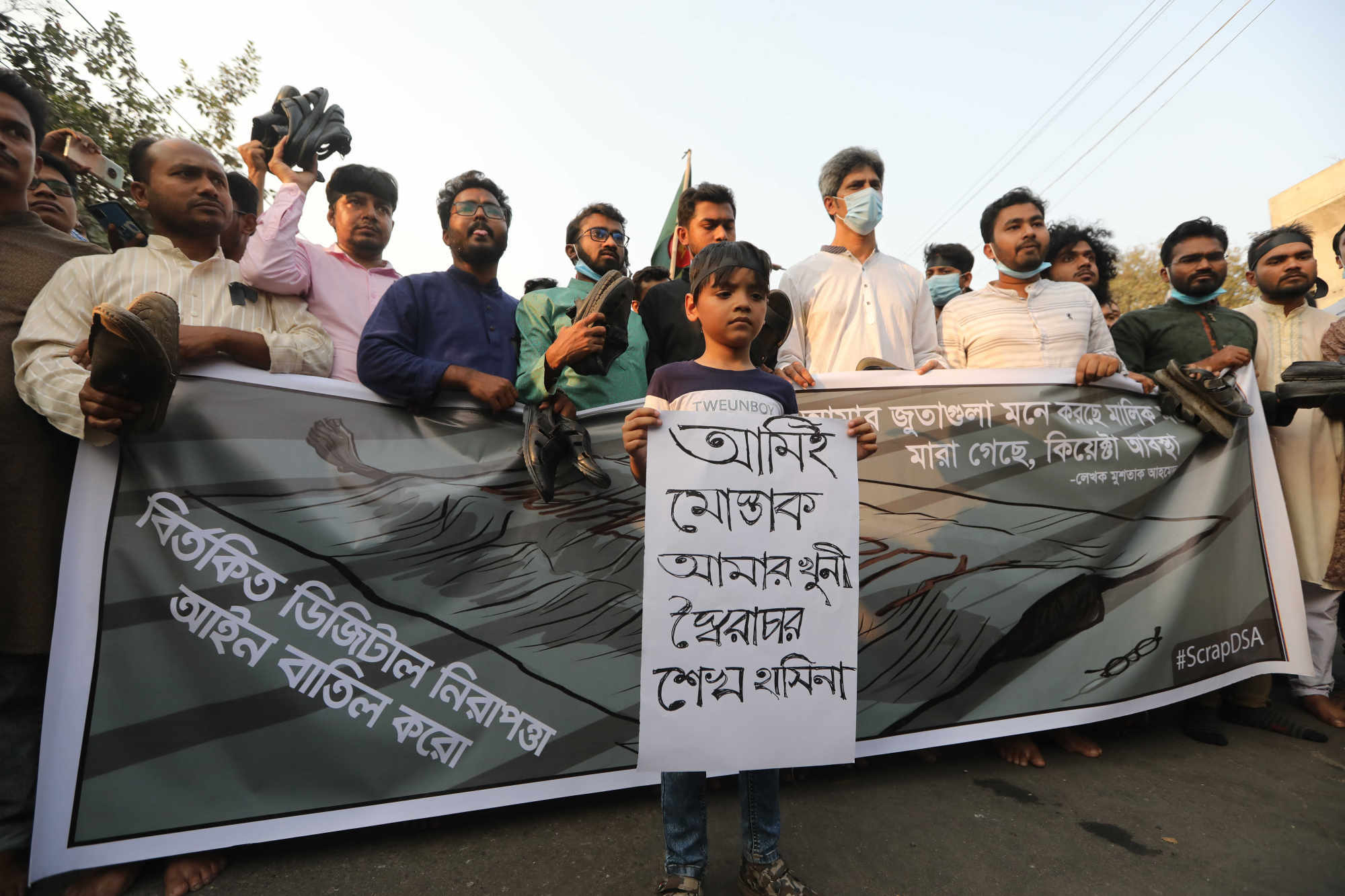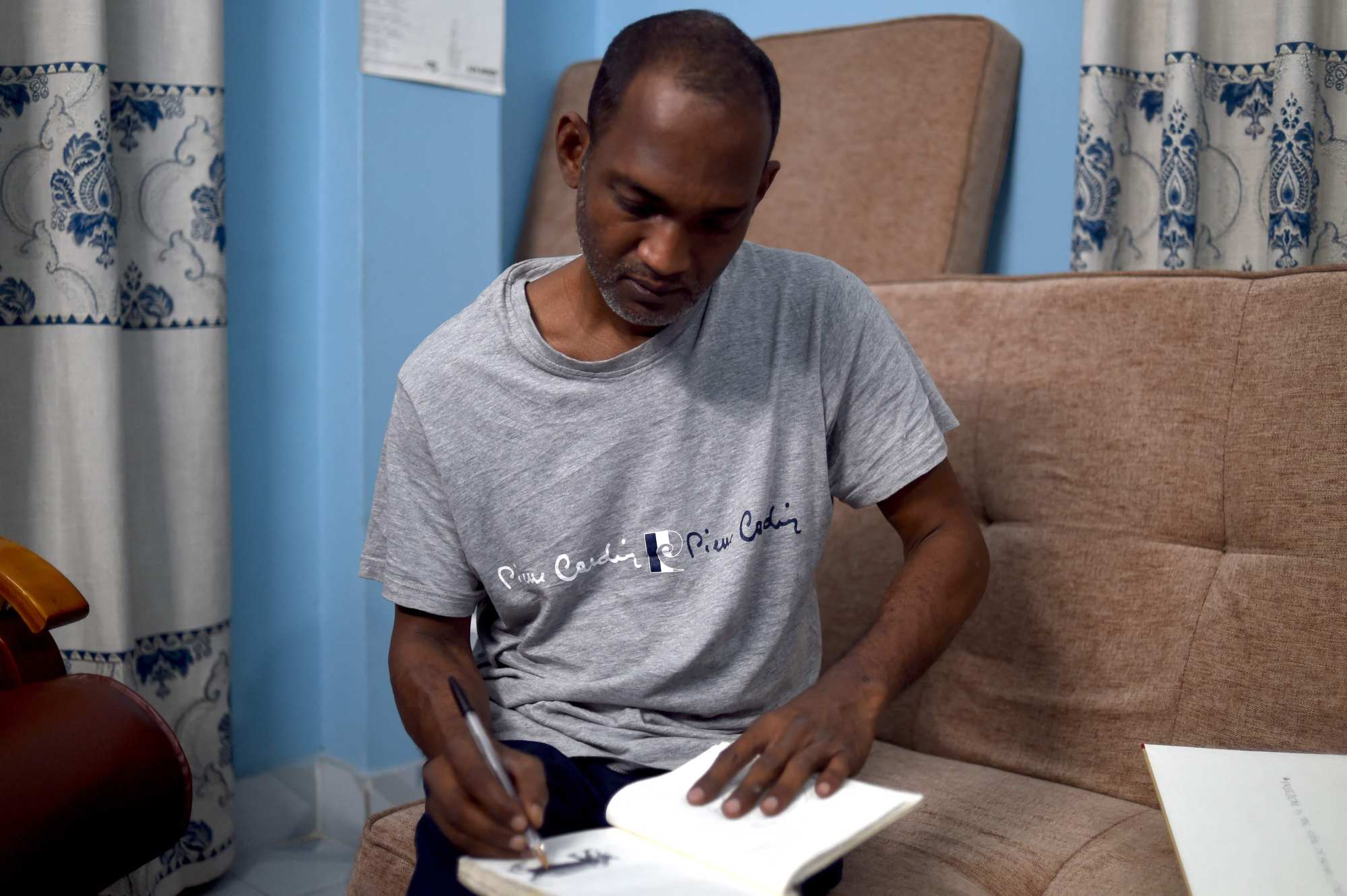
As Bangladesh turns 50, repression grows amid economic boom
- The country’s economy has grown more than 7 per cent annually over the last decade, and per capita GDP has more than quadrupled since 2000
- But critics say democracy is being eroded as PM Sheikh Hasina enacts increasingly repressive rules where a cartoon or Facebook post could land one in jail
Bangladesh turns 50 this week as an economic success story but also an increasingly repressive de facto one-party state where a cartoon or Facebook post can land you in jail, or worse.
ABM Shamsuddin, 66, has been a major beneficiary of the boom. He launched his sweater factory in 1998 with 110 machines and 250 workers. Now, Hannan Group’s five factories supply two dozen European brands and employ more than 10,000 people.
“My annual turnover is US$100 million,” said Shamsuddin as his workers stitched clothes for German high-street outlet Esprit. “I became a hero from zero.”

Praising the government for building decent infrastructure such as roads, ports and energy facilities, he predicts “a new era of prosperity” for the country of 168 million people.
One of his employees is Ruma, part of a 3 million-strong army of garment workers who have turned Bangladesh into the world’s second-largest clothing exporter behind China.
When Ruma’s mother died from diarrhoea in the 1980s, she was sent to live with relatives where an uncle tore up her books because “education isn’t for girls”.
She now earns US$420 in some months. During the Muslim festival of Eid she and her husband take home more than US$1,000 and are able to spend US$120 a month educating their two children.
“I am determined that my children will not be deprived of education,” she said in her two-room concrete home in the dusty industrial town of Gazipur.
When Bangladesh won independence from Pakistan in 1971 after a brutal war that killed 3 million people, it was written off as a “basket case” by then US national security advisor Henry Kissinger.
More than 80 per cent of people lived below the poverty line. Famines and military coups were frequent and most industry including the huge jute sector was owned by Pakistani businesspeople.
Now, according to Norwegian researcher Eirik G. Jansen, who has closely studied Bangladesh over the last four decades, a little over 10 per cent of people live in extreme poverty.
Production of rice, the main staple, has more than trebled, while life expectancy has risen to 73 from 41 in 1971, according to his latest book Seeing the End of Poverty: Bhaimara Revisited.

For the last decade, the economy has grown more than 7 per cent annually and per capita GDP has more than quadrupled since 2000.
Prime Minister Sheikh Hasina’s government aims to make Bangladesh a “developed country” by 2041.
But campaigners say democracy is being eroded under Hasina, premier since 2009, and the daughter of Bangladesh’s murdered “Father of the Nation”, Sheikh Mujibur Rahman.
Both are the subject of what critics call a growing cult of personality, with murals of their faces springing up around the country.

The main opposition Bangladesh Nationalist Party (BNP) is in tatters, with its chief, Hasina’s arch-rival Khaleda Zia, in jail for corruption and ailing.
The party says at least 3.5 million of its activists and supporters have been charged since 2012 under trumped-up charges, with many of them now behind bars.
Hundreds of others are missing after being picked up by security forces, the BNP says.
Authorities are clamping down on criticism, particularly online, with “digital security” legislation that rights groups say is used to arrest hundreds of journalists, activists and others.
One was writer Mushtaq Ahmed after he published an article and shared Facebook posts critical of Hasina’s handling of the coronavirus pandemic.
Ahmed, 53, collapsed in a high-security prison and died in February, sparking days of protests and clashes with security forces.

Arrested with him and now on bail after 10 months behind bars is cartoonist Ahmed Kabir Kishore, 45. He says he was tortured – allegations the authorities have denied.
He believes his crime was a cartoon mocking a businessman with close ties to the government. On the advice of his lawyer and rights activists he is now at a secret location.
“Am I a free man? I cannot draw. I was tortured because I drew. I was taken away from my child for 10 months because I drew,” he said.
Hazera Khatun certainly will not be joining the celebrations for the South Asian country’s half-centenary beginning on Friday.
Seven years ago, she says, her son Sajedul Islam Suman, an opposition activist, was taken away by the notorious Rapid Action Battalion, an elite police unit blamed for hundreds of extrajudicial killings.
“When night falls, I keep watching at the front door. Perhaps they have dropped my son on the porch,” she said, wiping away tears while looking through old photos of her child.
“My son loved the country a lot. He was very patriotic. He would fly the national flag, he would listen to patriotic songs,” she added. “I don’t like hearing those songs. This country is no longer ours.”

.png?itok=arIb17P0)